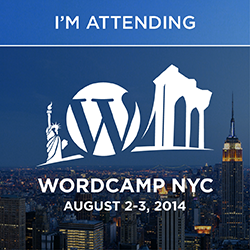In my continuing quest to pick up some useful WordPress skills, I just finished reading WordPress 3 Plugin Development Essentials by Brian Bondari & Everett Griffiths.
This book covers all the basics you’d need to develop a plugin, from setting up a local dev environment, to pushing code to the WordPress.org plugin directory.
This is definitely an overview book, covering a bunch of stuff without trying to be exhaustive about any particular thing. There is some coverage of necessary PHP and JavaScript topics, though this wouldn’t be a good book for someone with absolutely no background in PHP or JavaScript. The coverage of the WordPress API in general is sufficient to cover the basics, and to point you in the right direction on the topics that it doesn’t cover.
The book was published in 2011, and is somewhat out of date. For example, there’s a whole chapter on using Subversion, which is still useful in some circumstances, but I think most people would be using git for their day-to-day work at this point. And the first example plugin is built around Digg’s API, from the previous version of Digg (before it was re-launched in 2012), so it doesn’t work anymore. (It’s still a useful example to read through, but you wouldn’t be able to make it work.) I’m not entirely sure, but I’m pretty sure that all the core WordPress stuff that’s covered is still recent enough to be useful.
The heart of the book walks through a number of sample plugins, devoting a chapter to each. The author builds each plugin up a little at a time, explaining what he’s doing, before going on to the next part. In general, he builds things up in such a way that the plugin is functional at each stage, so you can run and debug your code as you go. This is a good approach, especially for less experienced developers.
For my own purposes, I didn’t bother actually working through the examples, as I found the explanations clear enough, and I know enough about web development that I didn’t feel like I needed to. And I skimmed over a lot of the material that was either out of date (e.g. the Subversion stuff) or that I already know (e.g. PHP and JavaScript basics).
If there were an updated version of this book available, I’d recommend it to anyone looking to get started with WordPress plugin development. As it stands, though, I’d really only recommend it if you don’t mind skipping over the stuff that’s out of date. If you can get the ebook version when Packt is having a sale, it’s worth picking up.
